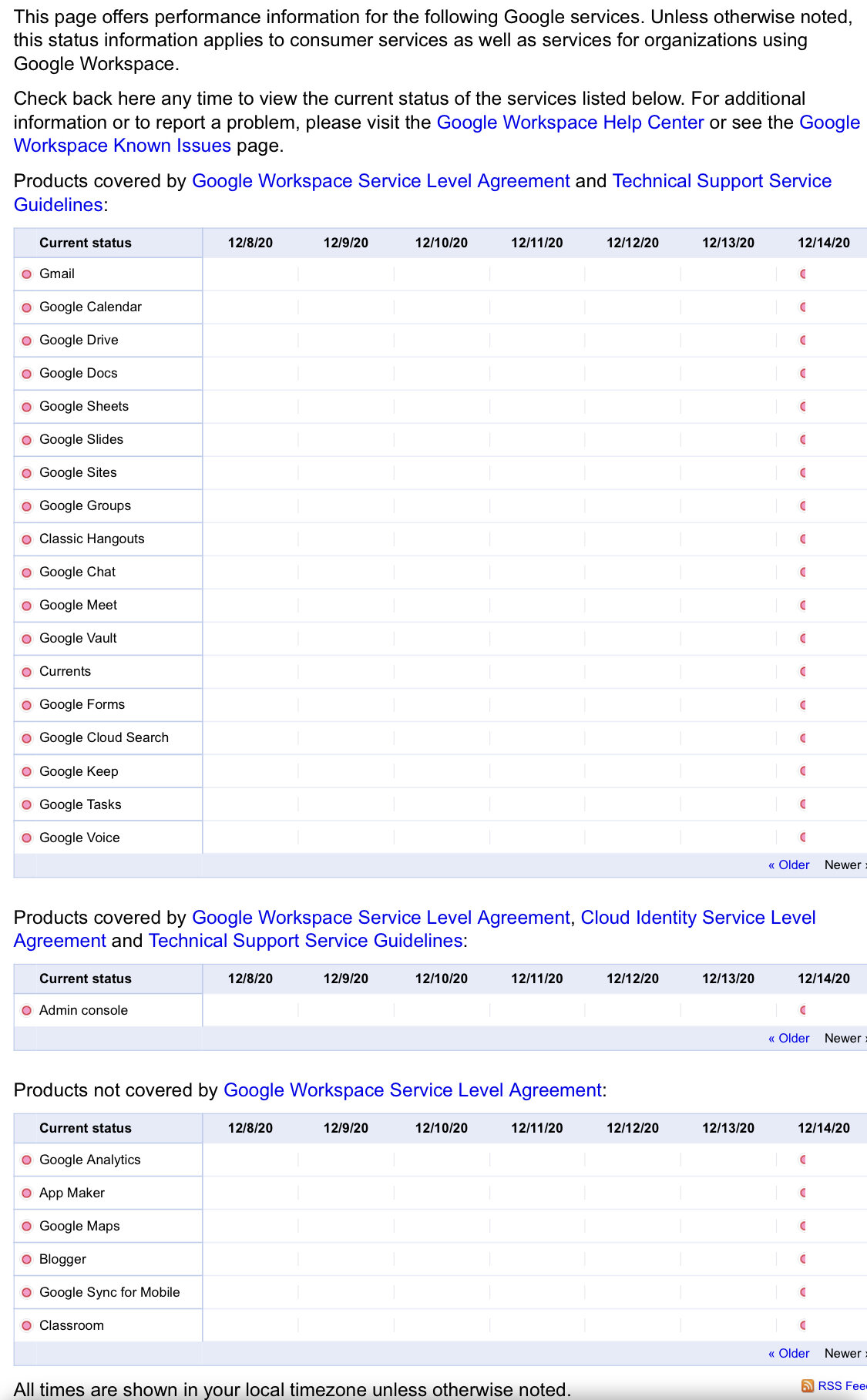Interesting Tech News from December 2020
This is a monthly column of curated tech news, highlighting interesting and/or valuable tech developments from the past month, which are impacting our society directly or indirectly. It also gives some vague sense of the trajectory that the technology as a whole is taking. The aim is to share the information concisely, in an easy-to-understand manner, help you fill some gaps on what you might have missed & learn something new.
ENTERPRISES CAN NOW TEST FULLY HOMOMORPHIC ENCRYPTION IN IBM TEST ENVIRONMENT
Encrypted data has to be decrypted before it can be processed. This gives a small window of opportunity to hackers. We know that companies such as Google, AMD and Intel, have been deploying confidential computing technology in cloud environments to ensure security of the data while it’s being processed by providing a Trusted Execution Environment to authorized applications only. This is one approach.
Wouldn’t it be wonderful that computers are still able to process the data, while it’s encrypted? That’s where FHE (Fully Homomorphic Encryption) comes into play. By using FHE, applications won’t need to decrypt the data before processing it.
FHE requires a lot of computing power. New advances in processor technologies have now made it possible for developers to start testing applications utilizing FHE technology. This will open new opportunities for sharing sensitive data in secure manner across environments, without having to compromise its security. IBM’s FHE experimental services for testing are now available.
AST SPACEMOBILE AND VODAFONE UNVEILED LAUNCH PLANS FOR THE FIRST SPACE-BASED 4G-5G MOBILE SERVICE IN 2023
Imagine you are hiking in a very remote part of the earth, where there is no cellular coverage. Wouldn’t it be great to have access to 4G or 5G data, without any special hardware, other than just your phone?
AST claims to have patented technology, that will give any ordinary smartphone, access to AST’s space mobile network. There will not be any need for antennas or satellite phones e.g. as used by SPACEX StarLink’s broadband internet, nor there will be any need for clear line of sight, AST claims.
If AST were to become operational in next few years, its solution would fill cellular coverage gaps and help people stay connected no matter how remote they are.
HOW YOUR LOCATION DATA IS BEING MISUSED AND WHY APPLE & GOOGLE DECIDED TO BAN THE TECHNOLOGY MISUSING IT
Your location data is roughly a more than $100 billion industry. There are many companies, which use your location data through your mobile apps and then resell it. One of them is X-Mode. Let’s try to understand their business model first from their own website:
X-Mode Business Model
An App Developer with 10k daily active users, can expect to earn $300, using X-Mode software for location tracking.
So, if you happen to be using an app on your smartphone, which is using X-Mode Software Development Kit (SDK) for location tracking; as per Motherboard’s investigation, X-Mode might have been selling your data to different organizations, including the US Government Agencies.
After these revelations, Apple and Google have told the app developers to remove X-Mode location tracking software from their apps or risk facing ban from their app stores.
GOOGLE’S MAJOR OUTAGE IN DECEMBER - WHAT HAPPENED?
Did you see this message on Dec 14 Morning?
If yes, you were not alone.
If on the morning of December 14, you couldn’t check your gmail, or couldn’t access your google docs for your schoolwork or had issues using Google Assistant or signing into YouTube, you were not alone.
The outage was global. Just by looking at the above Cannot Get Mail error, one can guess that the issue might have something to do with the Google Authentication service. Google published a detailed Root Cause Analysis (RCA). I will try to summarize this in a a few lines below.
Google migrated the distributed user account database, which potentially had our gmail user ids etc. to a new quota system in October. Unfortunately, the change did not fully get rid of the old quota system. This misconfiguration went undetected and resulted in the enforcement of the quota restrictions after a certain grace period (which maybe ended on Dec 14). The quota restrictions got enforced because the October change incorrectly reported the usage as 0, the scenario Google never expected.
Google resolved the issue by disabling the quota enforcement and services restored soon after that.
NOTABLE CYBER ATTACKS, BREACHES DISCOVERED IN THE MONTH OF DECEMBER 2020
IBM uncovered COVID-19 phishing email attack campaigns targeting organizations involved with the delivery of vaccines requiring a deep-freeze delivery chain.
Health records of more than 243 million Brazilians were accessible through Brazil’s Ministry of Health’s website. The records were kept in the source code of the website. Were they not protected? They were encoded but in Base64, which can be very easily decoded. Did someone make use of that? Who knows, maybe.
European Medicines Agency (EMA) was the victim of the cyber attack in which documents relating to COVID-19 vaccines were unlawfully accessed. The attack happened on 9th of December and EMA is still investigating how the server was breached and what kind of an attack it was.
A sophisticated supply chain cyber attack, through a compromised update of network management software Orion, developed by SolarWinds, was responsible for the breach of internal networks of several government agencies and private organizations including Cisco, FireEye, VMware, Nvidia, Deloitte etc. This was by far one of the biggest, well-crafted and sophisticated breaches of 2020.
Citizenlab uncovered a sophisticated zero-click hack, targeting Al Jazeera’s journalists in a well-detailed and thorough article. Allegedly Government spies used Pegasus spyware developed by NSO Group, an Israeli firm, to compromise journalist’s phones by exploiting zero-click, zero-day vulnerabilities in apps such as iMessage. The attack enabled the hackers to record ambient audio and phone calls, take pictures, track device and access stored credentials on the phone. The zero-day vulnerabilities exploited in the attacks, were fixed in iOS14.
If you have been seeing unusually large number of advertisements in your search results, you might want to check if your browser has been infected with a malware. Microsoft uncovered a widespread malware campaign - Microsoft calls it Adrozek - which has been silently injecting ads into search results. Browsers effected included Edge, Chrome, Yandex and Firefox. Don’t install software/plugins from sources you don’t know and if you think you were infected re-install your browser.
NOTABLE TECH ACQUISITIONS IN DECEMBER 2020
Will Salesforce buying of Slack for almost $28billion, challenge Microsoft Team? Maybe it’s too late for slack, considering Teams now have almost 10 times as many users as Slack.
Hyundai buys Boston Dynamic for $1billion. The purchase might hold value in the manufacturing, logistics and construction sector for Hyundai.
EU has approved Google’s takeover of Fitbit.
Google acquires Neverware, maker of CloudReady, the OS which turns old PCs into Chrome books.
OTHER TECH NEWS FROM DECEMBER 2020
Proteins carry out important functions inside a human cell and how they fold into 3-dimensional shapes affect human health. It has always been a big puzzle to predict how these proteins fold. Google’s owned DeepMind’s AI technology claims to have solved this puzzle.
AWS brings Mac Mini instances to the cloud. Would it be worth it for the developers as opposed to just getting your own mac mini?
AWS would now allow customers, through its ECS Anywhere and EKS Anywhere software, to manage workloads running on Azure or GCP. Equivalent Microsoft and Google products are Azure Arc and Google Anthos respectively.
End of an era. Adobe Flash support will finally end from all major platforms by the end of 2020.
Google fined $91 million dollar over ad-tracking cookies by France.
After transitioning from Intel processors, Apple will now be making its own modem chips as well, moving away from Qualcomm modem chips. Apple bought Intel’s modem division in 2019.
Apple launches expensive AirPods Max.
DJI has been added to US list of banned Chinese companies. DJI would still be able to sell its drones to NA customers. However, there will be restrictions on transfer of US technology to DJI.
Japan will be phasing out gas-run vehicles by 2030.
Amazon and Blackberry have partnered to build IVY (Intelligent Vehicle Data Platform), which will help automakers process and analyze data from vehicle sensors. It is expected to appear in vehicles in 2023.
Apple maps rolls out new maps features in Canada as well. In addition to more detailed data, you will now be able to explore street-level imagery using Look Around; a feature similar to Google’s Street View.
Virgin Galactic’s plan to fly tourists to space might have to wait more as it had to abort its human spaceflight test attempt. The cause was that the ignition sequence of the spaceplane did not complete.
Sophisticated and controversial surveillance technology originally developed for the intelligence and government agencies, is now being used by many school districts according to this article.
FUNNY TECH IN DECEMBER - TESLA’S BOOMBOX UPDATE
MAKE YOUR TESLA’S HORN HONK GOAT OR FART SOUND
Make Your Tesla’s Horn Honk Goat or Fart Sound
Thank you and see you next month.










